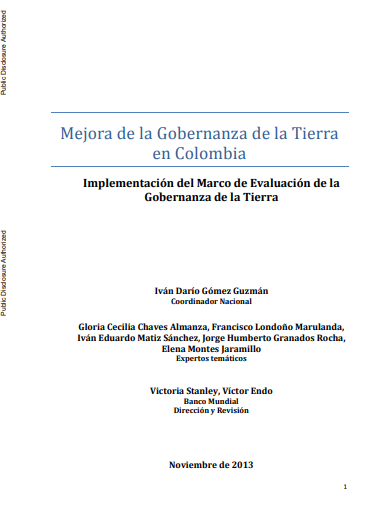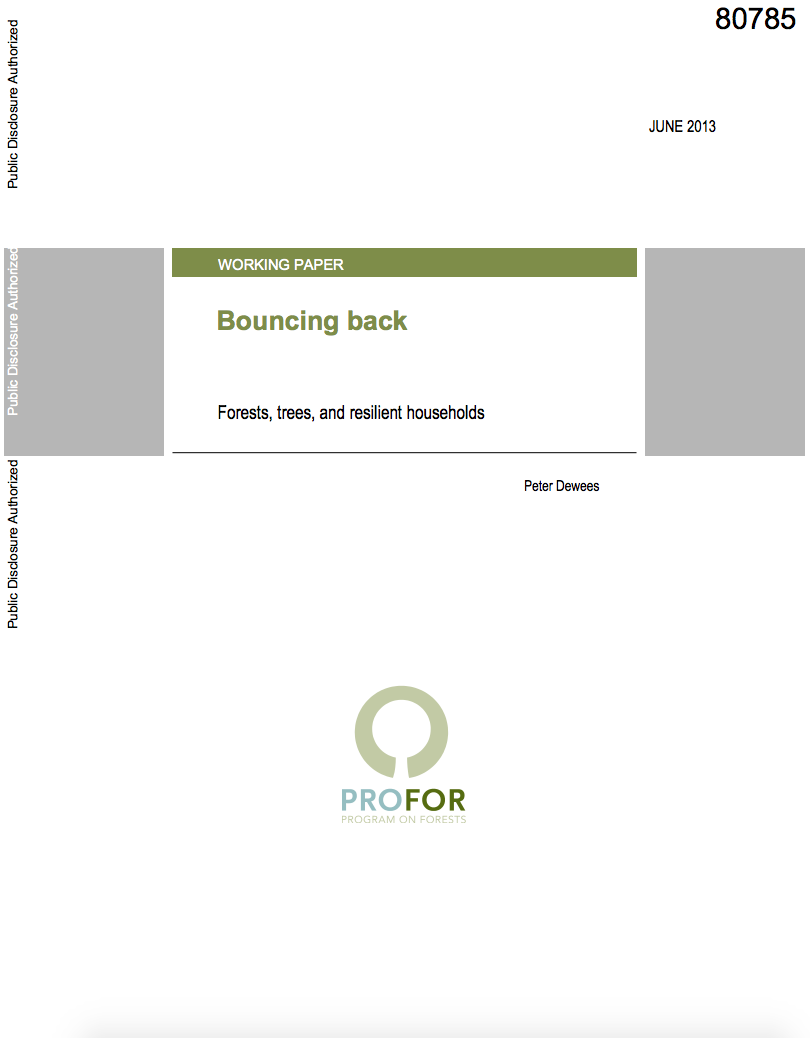The World Bank is a vital source of financial and technical assistance to developing countries around the world. We are not a bank in the ordinary sense but a unique partnership to reduce poverty and support development. The World Bank Group has two ambitious goals: End extreme poverty within a generation and boost shared prosperity.
- To end extreme poverty, the Bank's goal is to decrease the percentage of people living on less than $1.25 a day to no more than 3% by 2030.
- To promote shared prosperity, the goal is to promote income growth of the bottom 40% of the population in each country.
The World Bank Group comprises five institutions managed by their member countries.
The World Bank Group and Land: Working to protect the rights of existing land users and to help secure benefits for smallholder farmers
The World Bank (IBRD and IDA) interacts primarily with governments to increase agricultural productivity, strengthen land tenure policies and improve land governance. More than 90% of the World Bank’s agriculture portfolio focuses on the productivity and access to markets by small holder farmers. Ten percent of our projects focus on the governance of land tenure.
Similarly, investments by the International Finance Corporation (IFC), the World Bank Group’s private sector arm, including those in larger scale enterprises, overwhelmingly support smallholder farmers through improved access to finance, inputs and markets, and as direct suppliers. IFC invests in environmentally and socially sustainable private enterprises in all parts of the value chain (inputs such as irrigation and fertilizers, primary production, processing, transport and storage, traders, and risk management facilities including weather/crop insurance, warehouse financing, etc
For more information, visit the World Bank Group and land and food security (https://www.worldbank.org/en/topic/agriculture/brief/land-and-food-security1
Resources
Displaying 2116 - 2120 of 4907Mejora de la Gobernanza de la Tierra en Colombia (Spanish)
The Land Governance Assessment Framework (LGAF) is a diagnostic tool to assess the status of land governance at country level using a participatory process that draws systematically on existing evidence and local expertise rather than on outsiders.
World Bank: Nicaragua Proyecto De Sostenibilidad del Sector de Agua y Saneamiento Rural
Involuntary Resettlement Framework Policy
Labor Contracts and Risk Sharing
This paper analyzes the rationale and limits of using labor contracts as a risk-sharing mechanism by (1) discussing types of contracts and their characteristics; (2) deriving the optimal labor contract for risk-neutral firms and risk-averse workers; (3) contrasting the predictions of contract labor and spot labor markets; (4) discussing the limits of labor contracts as a mechanisms to allocate risks; (5) focusing on rural labor markets, where labor and land contracts provide substitutes and have implication in relation to risk allocation; (6) discussing government interventions; and (7) rev
Bouncing Back : Forests, Trees, and Resilient Households
This paper examines some of the concepts
surrounding the idea that forests and trees can contribute
to making households more resilient to food insecurity. The
paper begins with a discussion of the widely accepted
definitions of food security, and the implications for our
understanding of the role of forests and trees in
contributing to food security. Authors discuss the origins
of the idea of resilience, adaptability, and transformation
Indonesia : Urban Poverty and Program Review
This policy note provides a summary of
extensive analysis carried out on urban poverty in Indonesia
today and a review of main urban poverty programs, with the
objective of providing the basis for an urban poverty
reduction strategy. A second policy note, 'Indonesia:
evaluation of the urban Community-Driven Development, or CDD
program, Program Nasional Pemberdayaan Masyarakat
(PNPM)' summarizes a more detailed process evaluation









